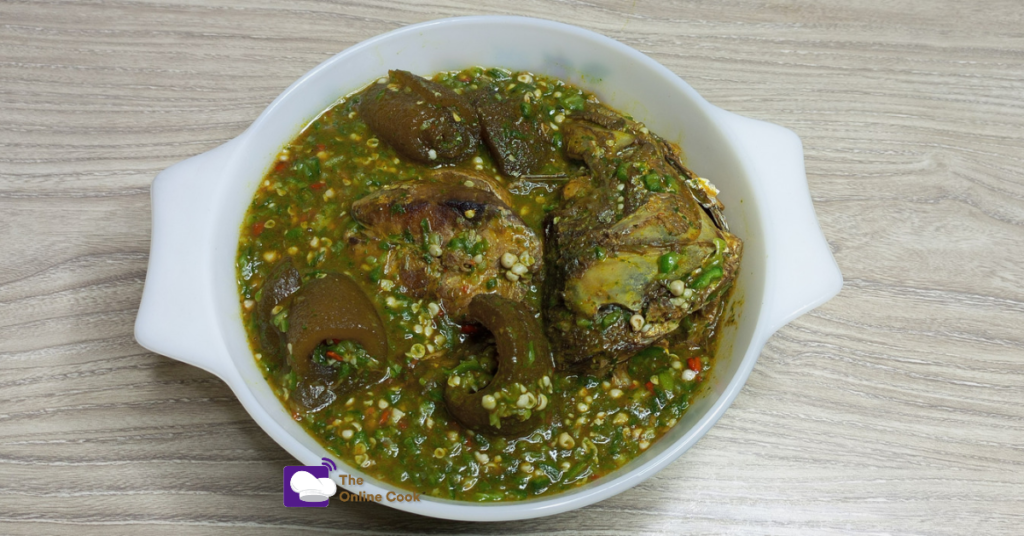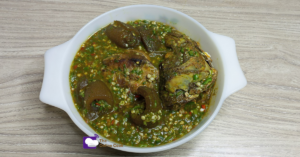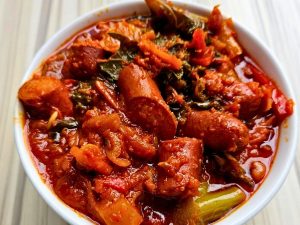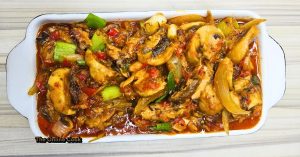
In Nigeria, Ewedu soup is popular amongst the Yorubas. But it is not only a Nigerian cuisine several other ethnic groups across the world also eat ewedu although it is known by different names.
The English name for ewedu is Jute leaves and it is also known as saluyot, lalo ,mulukhiyah, Jews mallow, Molokhia depending on the region where it is cultivated or cooked in.
In fact, It is considered a favorite middle eastern food and there are various recipes such as the Lebanese recipe, the Egyptian recipe, the Indian recipe, the tunisian recipe and much more. It can also be enjoyed with rice or chicken.
Although, in Nigeria Ewedu soup is best enjoyed with
- Eba or Garri
- Amala
- Lafun
- Semovita
- Wheat swallow
- Pupuru Ikale
As I continue with this blog post, here are some of the reasons why you should consider adding Ewedu to your diet.
Benefits of Ewedu leaves
In Nigeria the Yoruba people believe ewedu soup is of immense benefit to ones well being. So I will be listing some of the benefits of ewedu leaves and ewedu soup below;
- Jute leaves extract could be a tocolytic agent – Tocolytic agents are used to maintain pregnancy and may help to prevent pre-term labour.
- Fights cold and Flu – the abundant presence of Vitamin C in jute leaves helps to strenghten the immune system to fight against cold and flu.
- Easy Digestion – We all know vegetables are great for easy digestion. Ewedu contains a lot of fibre which aids in regulating our digestive process. The benefit of this is that, regular consumption of ewedu reduces constipation, bloating, cramping and many other digestives problems.
- Skin health – The presence of vitamin A, C, and E in jute leaf helps increase the production of collagen which prevents aging and helps the skin to be firm and beautiful.
- Strengthen the bones and teeth – It contains a high amount of calcium which contributes to having stronger teeth and bones.
- Jute plant consists of considerable amount of Vitamin K which is helpful in blood clotting.
- Regular consumption of Jute plant helps slow the start of certain eye diseases, including age-related macular degeneration.
Before machines and certain cooking utensils made cooking easy. I mean when there were no blenders, graters , food processors and many more, ewedu soup was cooked with brooms.
Yes, you read that right ewedu was cooked with brooms. This is the recipe on How To Cook Ewedu Soup With Brooms . You can also watch the video Recipe on my YouTube channel here
Just as there are so many Ewedu/Jute leaves recipes from all around the world, In Nigeria there are also many ewedu recipes too and I will be listing some below;
- Ewedu and egusi soup
- Ewedu, Gbegiri and stew (Abula)
- Ewedu and Bokolisa Soup | Ikale-Ilaje Soup
- Ewedu and gbegiri
- Plantain and Ewedu pottage and many more.
For this recipe, the ingredients for Ewedu and okro soup also known as ewedu ati ila alasepo are listed below;
- 2 handfuls Ewedu leaves
- 10-15 okro
- A pinch ofkaun or potash
- 1 horse mackerel fish (kote)
- 6 pieces ponmo ( cowskin)
- 3 scotch bonnet
- ¼ cup palm oil
- 2 table spoon crayfish powder
- ½ table spoon seasoning
- 1 teaspoon salt
- 2½ cups of water
Preparation
- Pluck ewedu leaves from the stem
- Rinse the plucked leaves well to remove dust, sand or small insects that may sometimes be on the leaves
- Put the leaves in a blender add 1\2 cup of water and blend it till it is smooth
- After blending power the blended ewedu into a bowl and set aside
- Pour the okro into a bowl of water and clean properly
- After cleaning, cut the top of the okro and grate the okro into your desired size – you can also use an electric blender or food processor
- Cut the fish into 4-5 and clean the fish cuts in clean water by removing the fins, fish intestines and blood.
- Put cleaned fishes in a basket to drain out excess water
- After 10 minutes add ½ teaspoon of salt to fishes
- Toss it for about 10 seconds to evenly spread the salt and fry the fishes with vegetable oil
- Remove all the oil and lightly sauté the grated peppers in the oiled pan
Cooking procedure
- Pour water into a clean pot and add Potash also called kaun or akaun
- Cover the pot and boil till the kaun dissolves completely
- Add the grated okro and mix well to avoid lump then cook for 2-3 minutes
- Also add the blended ewedu and mix well too
- Cook for 5 minutes – do not cover the pot
- After 3minutes, add crayfish powder, seasoning powder and salt.
- Mix well add fried fishes, cleaned ponmo
- Add palm oil and scotch bonnet pepper mix well
- Cook for 5- 6 minutes
Soup is Ready!!!



Thanks for sharing your info. I truly appreciate your efforts and I am waiting for your next write ups thank you once again.